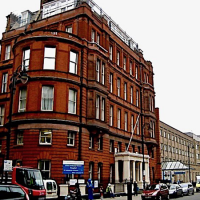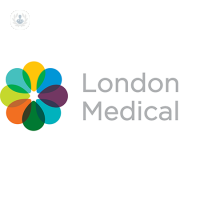What is neuroendocrinology?
Neuroendocrinology refers to the study of the neuroendocrine system, which is the interaction between the nervous system and the endocrine system and how they communicate together. Areas of the brain control the secretion of various hormones throughout the body, which in turn helps to regulate reproduction, blood pressure, metabolism, how our body uses energy, and other bodily functions.
What kind of conditions are related to the neuroendocrine system?
Hormones regulate a number of functions, including the way we behave, and our emotions. The neuroendocrine system encompasses a wide range of systems including how we cope and respond to stress, growth and metabolism, reproduction, our body clocks and sleep habits, giving birth, eating and drinking, and milk production. Therefore there are a great many conditions directly related to the neuroendocrine system, such as pituitary disorders, growth disorders, and stress-related disorders, to name but a few.
The neuroendocrine system is connected to libido, food intake, our internal body clock, and even the way we behave.
What is the difference between endocrinology and neuroendocrinology?
Neuroendocrinology, rather than being substantially different from the field of endocrinology, which is the study of hormones, studies the interaction between hormones and the brain. Therefore the two fields are closely connected. Hormones affect a great number of functions in the body, and referral to a neuroendocrinologist may come from a wide range of specialties, including obstetrics and gynaecology, neurology, psychiatry, and endocrinology itself, seeking a further examination of potential hormonal causes of a condition.
12-12-2017 04-18-2023Neuroendocrinology
Professor Pierre-Marc Bouloux - Endocrinology, diabetes & metabolism
Created on: 12-12-2017
Updated on: 04-18-2023
Edited by: Jay Staniland
What is neuroendocrinology?
Neuroendocrinology refers to the study of the neuroendocrine system, which is the interaction between the nervous system and the endocrine system and how they communicate together. Areas of the brain control the secretion of various hormones throughout the body, which in turn helps to regulate reproduction, blood pressure, metabolism, how our body uses energy, and other bodily functions.
What kind of conditions are related to the neuroendocrine system?
Hormones regulate a number of functions, including the way we behave, and our emotions. The neuroendocrine system encompasses a wide range of systems including how we cope and respond to stress, growth and metabolism, reproduction, our body clocks and sleep habits, giving birth, eating and drinking, and milk production. Therefore there are a great many conditions directly related to the neuroendocrine system, such as pituitary disorders, growth disorders, and stress-related disorders, to name but a few.
The neuroendocrine system is connected to libido, food intake, our internal body clock, and even the way we behave.
What is the difference between endocrinology and neuroendocrinology?
Neuroendocrinology, rather than being substantially different from the field of endocrinology, which is the study of hormones, studies the interaction between hormones and the brain. Therefore the two fields are closely connected. Hormones affect a great number of functions in the body, and referral to a neuroendocrinologist may come from a wide range of specialties, including obstetrics and gynaecology, neurology, psychiatry, and endocrinology itself, seeking a further examination of potential hormonal causes of a condition.


Neuroendocrine tumours (NETs): What are my treatment options?
By Dr Florian Wernig
2025-01-25
Neuroendocrine tumours (NETs) are abnormal growths that arise from neuroendocrine cells and typically appear in the gastrointestinal tract, pancreas and bronchi. Dr Florian Wernig, leading consultant endocrinologist from London, walks us through the typical symptoms of NETs and what your treatments options are if you have received a diagnosis. See more
Experts in Neuroendocrinology
-
Dr Helen Spoudeas
Paediatric endocrinology, diabetes & metabolismExpert in:
- Growth disorders
- Hypopituitarism
- Thyroid disorders
- Neuroendocrinology
- Adrenal gland disorders
- Childhood obesity
-
Professor Pierre-Marc Bouloux
Endocrinology, diabetes & metabolismExpert in:
- Andrology
- Diabetes
- Infertility
- Neuroendocrinology
- Adrenal gland disorders
- Thyroid disorders
-
Dr Bernard Khoo
Endocrinology, diabetes & metabolismExpert in:
- Neuroendocrinology
- Adrenal gland disorders
- Thyroid disorders
- Obesity
- Pituitary tumours
- Parathyroid gland
-
Dr Waseem Majeed
Endocrinology, diabetes & metabolismExpert in:
- Neuroendocrinology
- Obesity
- Adrenal gland disorders
- Hypogonadism
- Thyroid disorders
- Infertility
- See all

The Physicians' Clinic
The Physicians' Clinic
14 Devonshire St, London W1G 7AE
No existe teléfono en el centro.
By using the telephone number provided by TOP DOCTORS, you automatically agree to let us use your phone number for statistical and commercial purposes. For further information, read our Privacy Policy
Top Doctors

Great Ormond Street Hospital
Great Ormond Street Hospital
Great Ormond Street. WC1N 3JH
No existe teléfono en el centro.
By using the telephone number provided by TOP DOCTORS, you automatically agree to let us use your phone number for statistical and commercial purposes. For further information, read our Privacy Policy
Top Doctors

London Medical
London Medical
49 Marylebone High Street, W1U 5HJ
No existe teléfono en el centro.
By using the telephone number provided by TOP DOCTORS, you automatically agree to let us use your phone number for statistical and commercial purposes. For further information, read our Privacy Policy
Top Doctors
-
The Physicians' Clinic
14 Devonshire St, London W1G 7AE, Central LondonExpert in:
- Cardiology
- Dermatology
- Gastroenterology
- Neurology
- Rheumatology
-
Great Ormond Street Hospital
Great Ormond Street. WC1N 3JH, Central LondonExpert in:
- Cancer
- Paediatric neurosurgery
- Paediatrics
-
London Medical
49 Marylebone High Street, W1U 5HJ, Central LondonExpert in:
- Cardiology
- Adult Diabetes
- Child Diabetes
- Endocrinology
- General practice
- Ophthalmology
- See all
- Most viewed diseases, medical tests, and treatments
- Osteoporosis
- Hormone therapy
- Autoimmune diseases
- Nutrition
- Preconception care
- Long Covid
- DEXA scan
- Stress
- Thyroid disorders
- Anti-ageing treatments






